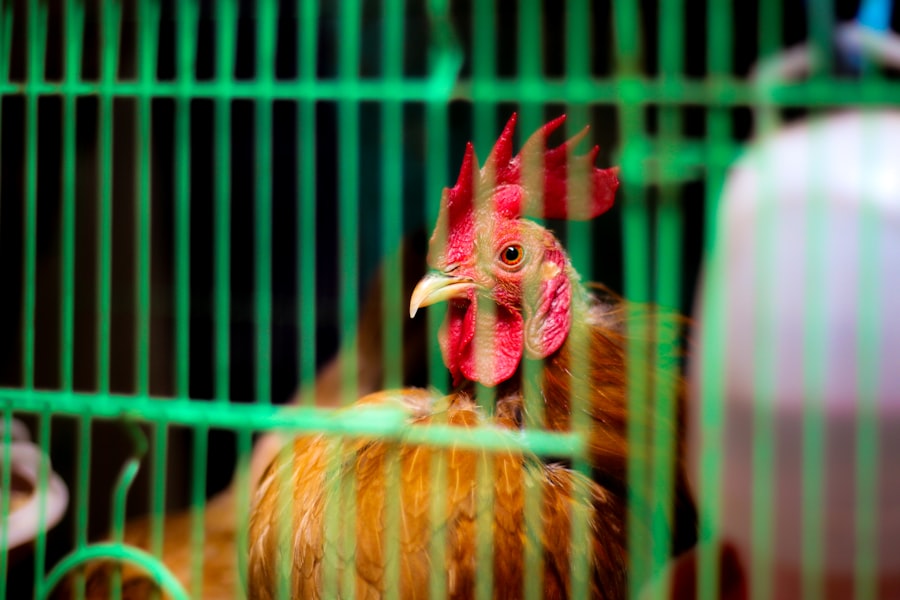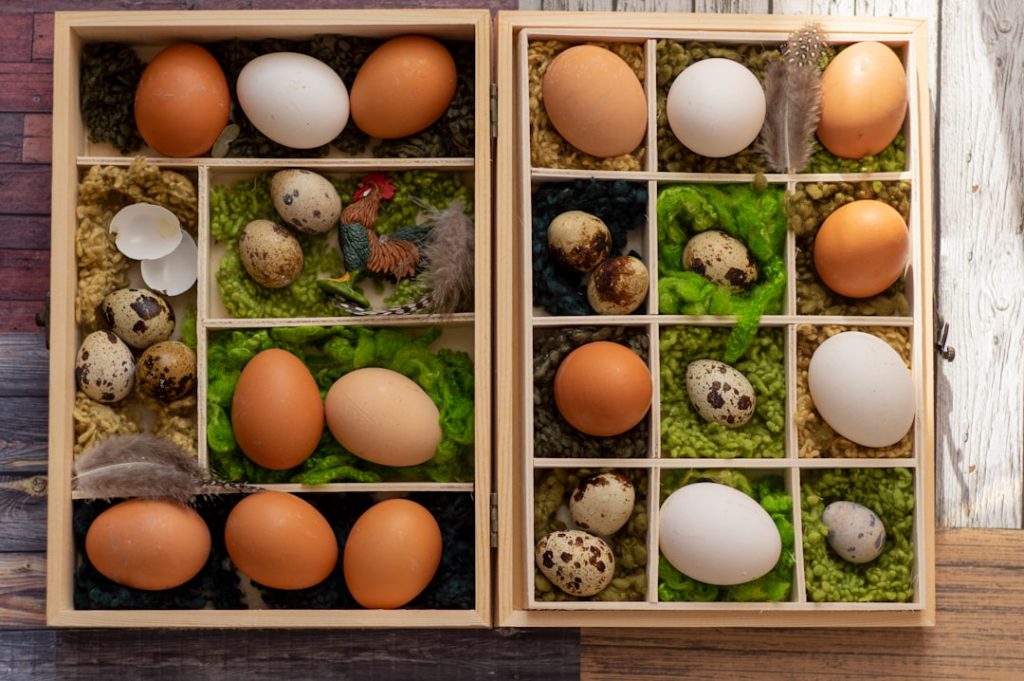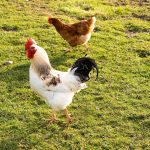Maintaining dry conditions for chickens is essential for their health and welfare. Excessive moisture can cause various health problems, including respiratory issues, feather damage, and potential hypothermia. When chickens’ feathers become saturated, they struggle to regulate body temperature, leading to stress and illness that can negatively impact egg production and overall flock vitality.
Wet and muddy environments also promote the growth of harmful bacteria and parasites, increasing the risk of infections and diseases among chickens. Keeping chickens dry is crucial for both their physical and mental well-being. Damp conditions can cause stress and discomfort, potentially resulting in behavioral problems such as aggression and reduced egg production.
By providing a dry and comfortable habitat, chicken owners can ensure their flock remains content and stress-free, promoting overall happiness and productivity. Poultry keepers must prioritize maintaining dry conditions for their chickens to support optimal health, egg production, and flock management. This understanding is fundamental for anyone seeking to raise a thriving and healthy group of chickens.
Table of Contents
- 1 Providing adequate shelter for your chickens
- 2 Implementing proper drainage in the chicken coop
- 3 Using waterproof materials for chicken coop construction
- 4 Creating a designated rain-free area for chickens to roam
- 5 Monitoring and managing the impact of rain on chicken health
- 6 Seeking professional advice for chicken care in wet climates
- 7 FAQs
Key Takeaways
- Keeping chickens dry is crucial for their health and well-being
- Adequate shelter is essential to protect chickens from rain and moisture
- Proper drainage in the chicken coop helps prevent standing water and moisture buildup
- Using waterproof materials for construction can help maintain a dry environment for chickens
- Creating a designated rain-free area for chickens to roam can minimize the impact of rain on their health
Providing adequate shelter for your chickens
Designing a Well-Constructed Chicken Coop
A well-constructed chicken coop is essential for keeping chickens dry and comfortable. It not only offers protection from the elements but also provides a comfortable and dry environment for the birds to roost and lay eggs. When designing a chicken coop, it is crucial to consider factors such as ventilation, insulation, and proper roofing to ensure that the chickens remain dry and comfortable in all weather conditions.
Providing Ample Space and Reducing Moisture Buildup
Additionally, providing ample space within the coop allows the chickens to move around freely without overcrowding, reducing the risk of moisture buildup from excessive condensation and waste. This helps to maintain a dry and comfortable environment for the birds.
Outdoor Shelter for Inclement Weather
In addition to the coop, it is also important to provide outdoor shelter for the chickens to seek refuge during inclement weather. This can include covered runs or designated areas with overhead protection to shield the birds from rain and snow.
Promoting Better Health and Productivity
By providing adequate shelter both inside and outside the coop, chicken owners can ensure that their flock remains dry and comfortable, ultimately promoting better health and productivity among the birds.
Implementing proper drainage in the chicken coop
Proper drainage is essential for maintaining a dry environment within the chicken coop. Without adequate drainage, water can accumulate inside the coop, leading to damp conditions that are detrimental to the health of the chickens. To prevent this, chicken owners should implement proper drainage systems such as sloped flooring, gutters, and downspouts to direct water away from the coop.
Additionally, using materials such as gravel or sand in the coop’s flooring can help absorb moisture and prevent standing water, further promoting a dry environment for the chickens. Furthermore, regular maintenance of the coop’s drainage systems is crucial to ensure their effectiveness. This includes clearing debris from gutters and downspouts, as well as regularly inspecting the flooring for any signs of water buildup.
By implementing proper drainage in the chicken coop and maintaining it regularly, owners can effectively prevent moisture-related issues and provide a dry and healthy environment for their flock.
Using waterproof materials for chicken coop construction
When constructing or renovating a chicken coop, it is important to use waterproof materials to ensure that the structure remains dry and durable in all weather conditions. This includes using materials such as treated lumber, metal roofing, and waterproof sealants to protect the coop from moisture infiltration. Additionally, choosing materials that are easy to clean and maintain can help prevent moisture buildup and promote a dry environment for the chickens.
In addition to using waterproof materials, proper insulation is also important for regulating temperature and preventing condensation within the coop. Insulating the walls and roof of the coop can help maintain a consistent temperature and reduce the risk of moisture buildup, ultimately keeping the chickens dry and comfortable. By using waterproof materials and proper insulation in the construction of the chicken coop, owners can ensure that their flock remains protected from the elements and maintains optimal health and productivity.
Creating a designated rain-free area for chickens to roam
In addition to providing shelter within the coop, it is important to create a designated rain-free area for the chickens to roam outdoors. This can include covered runs or enclosed areas with overhead protection to shield the birds from rain and snow while still allowing them to exercise and forage. By providing a rain-free area for the chickens, owners can ensure that their flock has access to fresh air and outdoor space without being exposed to wet conditions that can lead to health issues.
Furthermore, creating a designated rain-free area can also help prevent mud buildup around the coop, reducing the risk of bacterial growth and disease among the flock. By allowing the chickens to roam in a dry outdoor space, owners can promote better health and cleanliness among the birds while minimizing the impact of wet weather on their overall well-being.
Monitoring and managing the impact of rain on chicken health

Monitoring the Coop and Flock
In wet climates, it is crucial for chicken owners to closely monitor the impact of rain on their flock’s health and well-being. This includes regularly inspecting the coop for signs of moisture buildup, checking the chickens for any signs of illness or discomfort, and adjusting management practices as needed to mitigate the effects of wet weather.
Providing a Comfortable Environment
Additionally, providing extra bedding in the coop during rainy periods can help absorb moisture and keep the chickens dry and comfortable. This simple step can go a long way in maintaining a healthy and happy flock.
Adjusting Feeding and Watering Practices
Managing the impact of rain on chicken health also involves adjusting feeding and watering practices to account for changes in weather conditions. For example, providing extra sheltered feeding areas can help prevent feed from getting wet and spoiling, while ensuring that water sources are protected from rain can help prevent contamination and promote better hydration among the flock.
By monitoring and managing the impact of rain on chicken health, owners can effectively minimize the risk of illness and maintain a healthy and thriving flock.
Seeking professional advice for chicken care in wet climates
For chicken owners in wet climates, seeking professional advice from veterinarians or experienced poultry keepers can provide valuable insights into managing the impact of rain on chicken health. Professionals can offer guidance on best practices for maintaining a dry environment within the coop, preventing moisture-related health issues, and adjusting management practices to account for wet weather conditions. Additionally, veterinarians can provide recommendations for preventative healthcare measures such as vaccinations and parasite control to help protect the flock from potential illnesses associated with wet conditions.
Furthermore, professional advice can also help chicken owners identify early signs of illness or stress related to wet weather and provide appropriate treatment or management strategies. By seeking professional advice for chicken care in wet climates, owners can gain valuable knowledge and support to ensure the health and well-being of their flock in all weather conditions. Overall, professional guidance can be instrumental in helping chicken owners navigate the challenges of keeping their flock dry and healthy in wet climates.
If you’re looking for ways to keep your chickens dry and comfortable during rainy weather, you may want to check out this article on how to insulate a chicken coop. Insulating your coop can help protect your chickens from the elements and provide them with a cozy shelter during inclement weather.
FAQs
Why should I keep chickens out of the rain?
Chickens can get sick if they are exposed to prolonged periods of rain. Wet feathers can lead to hypothermia and other health issues.
How can I keep chickens out of the rain?
You can provide shelter for your chickens, such as a coop or a covered area, to keep them dry during rainy weather. Additionally, you can use tarps or other coverings to protect their outdoor areas.
What are the signs of a chicken getting sick from the rain?
Signs of a chicken getting sick from the rain include shivering, lethargy, and a decrease in egg production. It’s important to monitor your chickens for any signs of illness and seek veterinary care if necessary.
Can chickens handle some rain?
Chickens can handle light rain for short periods of time, but prolonged exposure to heavy rain can be detrimental to their health. It’s best to provide them with shelter during rainy weather.
Are there specific breeds of chickens that are more resistant to rain?
Some breeds of chickens, such as the Orpington and the Sussex, have thicker, more water-resistant feathers that can provide some protection against rain. However, all chickens can benefit from shelter during rainy weather.
Meet Walter, the feathered-friend fanatic of Florida! Nestled in the sunshine state, Walter struts through life with his feathered companions, clucking his way to happiness. With a coop that’s fancier than a five-star hotel, he’s the Don Juan of the chicken world. When he’s not teaching his hens to do the cha-cha, you’ll find him in a heated debate with his prized rooster, Sir Clucks-a-Lot. Walter’s poultry passion is no yolk; he’s the sunny-side-up guy you never knew you needed in your flock of friends!







